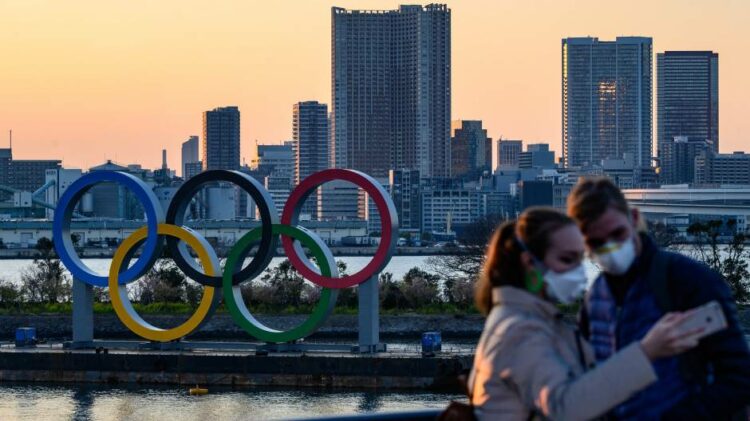
The fate of next year's Olympics depends on Japan's handling of the coronavirus, according to the governor of Tokyo.
Yuriko Koike said the Games could signify a “victory” over the pandemic, adding that more work is still to be done to improve treatment and testing, but admitted that organizers were contending with a number of uncertainties.
The Olympics were originally scheduled to begin in July, but the start date has been moved to July 24 next year amid the Covid-19 outbreak.
“The Tokyo 2020 Olympics are an important event that everyone has been waiting for,” Koike told CNN's Will Ripley.
“The postponement cost a lot and, more than anything, we do not know what the coronavirus situation will be like in July next year. We have a few uncertainties here.
“It costs a lot to begin with, we need understanding from the people of Tokyo for it. We must not spend too much. We have to make the Games safe for athletes and spectators.”
Organizers said in December that the cost of hosting the Olympics was some 1.35 trillion yen ($12.35 billion), while sponsors, insurers and broadcasters have also committed billions to the Games.
‘Clear goal to win’
There have been 17,039 confirmed cases of the coronavirus in Japan and 917 deaths, according to the latest tally from Johns Hopkins University (JHU).
Since the postponement of the Olympics was announced, officials have said there is no plan to delay the Games again.
“We have to identify the specifics of the virus, develop the curing medicine, improve the testing facilities,” said Koike.
“But we cannot afford to let the battle against the coronavirus last for 10 or 20 years. The global community must have a clear goal to win over the coronavirus and compete for solutions by making a safe society and sharing successful examples (of battling the virus).
“I wish the success of the Tokyo 2020 Olympics as (a sign) of humanity's victory over the coronavirus.”
Despite its high population density, Tokyo has weathered the virus well, recording 5,347 confirmed cases and 307 deaths, according to JHU.
“That is all thanks to cooperation by the people of Tokyo,” said Koike.
“Wearing masks has become an ordinary custom for the Japanese since the Spanish flu pandemic in 1918 … The sense of hygiene of the Japanese people was superb and that helped to suppress the number of deaths compared to western countries.”




